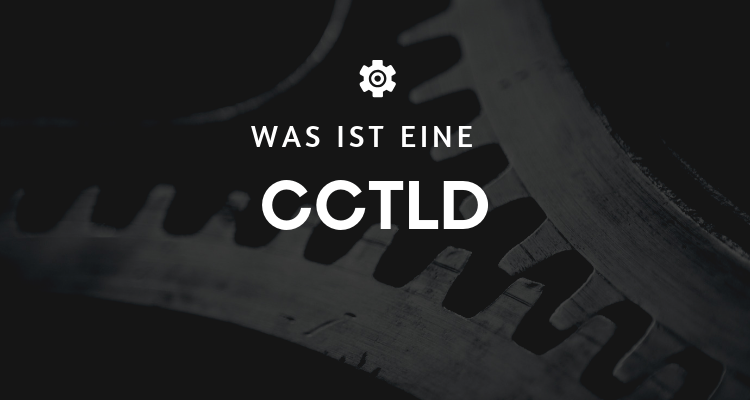
ccTLD - What does it mean?
ccTLD stands for "Country Code Top Level Domain" and refers to a domain that is assigned to a specific country or region. Most ccTLDs are structured in the form of a country code, for example ".de" for Germany and ".uk" for Great Britain. ccTLDs are administered by national registries, which are responsible for domain registration and administration.
Advantages of ccTLDs
ccTLDs haben einige Vorteile für Webseitenbetreiber und Websitebesucher. Ein wichtiger Vorteil ist die bessere Suchmaschinenoptimierung (SEO). Da ccTLDs mit bestimmten Ländern und Regionen verknüpft sind, können Suchmaschinen leichter erkennen, wo sich eine Website befindet und an welches Publikum sie sich richtet. Dadurch kann sich die Position einer Webseite in den Suchergebnissen verbessern. ccTLDs sind auch ein exzellentes Mittel, um eine Marke zu schützen, da sie eine eindeutige Erkennung ermöglichen.
There are also other advantages of ccTLDs (country code top-level domains) to consider:
- Regional Relevance: ccTLDs can help a website be perceived as geographically specific and relevant to a particular country or region. This can help the website to be found better by search engines and to be visited by the right users.
- Trustworthiness: A website with a ccTLD may be perceived as more trustworthy by users because it was developed specifically for a particular country or region.
- Regional advantages: Some ccTLDs offer special benefits such as higher visibility in search results for certain countries or regions.
- Simple reminder: A website with a ccTLD can be easier for users to remember because it has a specific ending that indicates its regional Relevance displays.
- Possibility to identify the region: ccTLDs can help make it easier to identify the region in which a website is located. This can be especially helpful when offering localized content or products.
Disadvantages of ccTLDs
ccTLDs can be challenging for some companies. Since ccTLDs are associated with a specific country or region, it can be difficult to use the domain in multiple countries.
There are other disadvantages of ccTLDs (country code top-level domains) that you should be aware of:
- Limited distribution: ccTLDs sind in der Regel auf ein bestimmtes Land oder eine bestimmte Region beschränkt. Das bedeutet, dass sie möglicherweise nicht so weit verbreitet sind wie andere Domain-Endungen wie .com oder .org. Dies kann dazu führen, dass sie weniger vertrauenswürdig erscheinen und weniger Traffic to the website.
- Specific Search results: Some search engines such as Google will consider ccTLDs to be geographically specific and therefore display them in the search results for certain countries. This means that a website with a ccTLD may not be displayed in the search results for other countries, which limits the visibility of the website.
- Higher costs: In some countries, ccTLDs can be more expensive than other domain extensions. This means that you have to spend more money to register a ccTLD to register.
- Transfer restrictions: Some ccTLDs have restrictions on transferring domains. This means that you may not be able to transfer them from one registrar to another without meeting certain conditions.
- Restrictions on use: Some ccTLDs have stricter requirements for use and can only be used by certain types of businesses or organizations. This may mean that you cannot use them if you do not meet the requirements.
Use cases of ccTLDs
ccTLDs are often used for companies, organizations and individuals operating in a specific country or region. They are also often used as part of a brand strategy to strengthen brand image and build customer trust.
Example 1:
A German company that operates exclusively in Germany can use a ".de" domain to reinforce its authenticity.
Example 2:
A company with global customers can use a ".com" domain to strengthen their brand across country borders.
What is a ccTLD? (Country Code Top-Level Domain)
A country code top-level domain, in short ccTLDis an internationalized version of what you may already know. The ccTLDs you see every day when browsing depend heavily on where you live.
In Germany is ".de" is very common. In Australia it is called ".com.au" or simply ".au". In Mexico it is called ".mx". In China it is called ".cn". In the United Kingdom it is called ".uk". And the list can go on and on.
For Country Code Top-Level Domains, short ccTLDs, it's all about local SEO. Remember, however, that a single SEO component, like this one, is only one part of a broader digital marketing strategy.
What are the SEO advantages of a ccTLD?
Country code top-level domain names are the most powerful way to rank a domain or page in a specific country.
There are other ways to do it. For example, technically I could set a page on our website, wolf-pf-seo.de, to a Ranking in the U.S. - but I would have to put in significantly more effort to do so.
In the end, the fastest and most effective way to get a website ranked at the top of search engines in a particular country is to Country domain of the country concerned to be selected and used.
For example, if you have two pages that are exactly the same and one is on a ".com" site while the other is on a ".de" site, the one that is on a ".de" domain is usually more inclined to rank better in the German version of Google.
The Search Engine Google assumes that all content in a country code top-level domain is designed for that country - so naturally it will rank the website in that country.
What ccTLDs are there?
Here is a table of ccTLDs (country code top-level domains), sorted by country:
| Country | ccTLD |
|---|---|
| Afghanistan | .af |
| Albania | .al |
| Algeria | .dz |
| American Virgin Islands | .vi |
| Andorra | .ad |
| Angola | .ao |
| Anguilla | .ai |
| Antarctica | .aq |
| Antigua and Barbuda | .ag |
| Egypt | .eg |
| Equatorial Guinea | .gq |
| Argentina | .ar |
| Armenia | .am |
| Aruba | .aw |
| Azerbaijan | .az |
| Australia | .au |
| Austria | .at |
| Bahamas | .bs |
| Bahrain | .bh |
| Bangladesh | .bd |
| Barbados | .bb |
| Belarus | .by |
| Belgium | .be |
| Belize | .bz |
| Benin | .bj |
| Bermudas | .bm |
| Bhutan | .bt |
| Bolivia | .bo |
| Bosnia and Herzegovina | .ba |
| Botswana | .bw |
| Bouvet Island | .bv |
| Brazil | .br |
| British Virgin Islands | .vg |
| Brunei Darussalam | .bn |
| Bulgaria | .bg |
| Burkina Faso | .bf |
| Burundi | .bi |
| Cambodia | .kh |
| Cameroon | .cm |
| Canada | .ca |
| Cape Verde | .cv |
| Caribbean Netherlands | .bq |
| Cayman Islands | .ky |
| Central African Republic | .cf |
| Chad | .td |
| Chile | .cl |
| China | .cn |
| Christmas Island | .cx |
| Cocos Islands | .cc |
| Colombia | .co |
| Comoros | .km |
| Congo | .cg |
| Congo (Democratic Republic) | .cd |
| Cook Islands | .ck |
| Costa Rica | .cr |
| Côte d'Ivoire | .ci |
| Croatia | .hr |
| Cuba | .cu |
| Curaçao | .cw |
| Cyprus | .cy |
| Czech Republic | .cz |
| Country | ccTLD |
| Germany | .de |
| Djibouti | .dj |
| Dominica | .dm |
| Dominican republic | .do |
| Ecuador | .ec |
| El Salvador | .sv |
| Equatorial Guinea | .gq |
| Eritrea | .he |
| Estonia | .ee |
| Ethiopia | .et |
| Falkland Islands | .fk |
| Faroe Islands | .fo |
| Fiji | .fj |
| Finland | .fi |
| France | .fr |
| French Guiana | .gf |
| French Polynesia | .pf |
| French Southern and Antarctic Territories | .tf |
| Gabon | .ga |
| Gambia | .gm |
| Georgia | .ge |
| Ghana | .gh |
| Gibraltar | .gi |
| Greenland | .gl |
| Grenada | .gd |
| Guadeloupe | .gp |
| Guam | .gu |
| Guatemala | .gt |
| Guernsey | .gg |
| Guinea | .gn |
| Guinea-Bissau | .gw |
| Guyana | .gy |
| Haiti | .ht |
| Heard and McDonald Islands | .huh |
| Honduras | .hn |
| Hong Kong | .hk |
| Hungary | .hu |
| Iceland | .is |
| India | .in |
| Indonesia | .id |
| Iran | .ir |
| Iraq | .iq |
| Ireland | .ie |
| Isle of Man | .in the |
| Israel | .il |
| Italy | .it |
| Jamaica | .jm |
| Japan | .jp |
| Jersey | .each |
| Jordan | .yo |
| Kazakhstan | .kz |
| Kenya | .ke |
| Kyrgyzstan | .kg |
| Kiribati | .ki |
| Kosovo | .xk |
| Kuwait | .kw |
| Laos | .la |
| Latvia | .lv |
| Lebanon | .lb |
| Lesotho | .ls |
| Liberia | .lr |
| Libya | .ly |
| Liechtenstein | .li |
| Lithuania | .lt |
| Luxembourg | .lu |
| Macau | .mo |
| Macedonia | .mk |
| Madagascar | .mg |
| Malawi | .mw |
Conclusion
ccTLDs are a great way to strengthen a brand's authenticity and focus on specific countries or regions. However, they can also be challenging if you want to focus on multiple markets. Therefore, one must be aware that ccTLDs may be subject to restrictions that may vary by country.
« Back to Glossary Index





